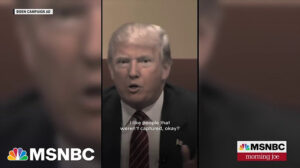
When you make purchases through our links we may earn a small commission.

Photo Credit: Daniel Thomas
Put It On Your Wall: CanvasOnDemand.com
Help us spread the word about the benefits of Universal Basic Healthcare for only $1.99 a month – every dollar helps.
🇺🇸
Don’t forget to ‘Like’ our social issues Facebook page, Partisan For The People, where you can comment on – and share – all our latest posts.
Universal Basic Healthcare (UBH) has been a topic of intense debate in the United States, with proponents arguing that it is a fundamental right and opponents expressing concerns about the potential economic burden. In this article, we explore the cost of implementing UBH and shed light on how studies have indicated that it could lead to substantial savings for American taxpayers.
Logistical Challenges
Implementing a comprehensive UBH system undoubtedly presents logistical challenges. Transitioning from the current healthcare model to one that covers all citizens requires careful planning, coordination, and adjustments to existing structures. Critics argue that the transition may lead to disruptions and strain on the healthcare system. However, it is essential to recognize that many countries around the world have successfully implemented universal healthcare, providing valuable lessons for overcoming logistical hurdles.
Content Continues Below
Cost-Saving Projections
Contrary to common perceptions, studies have consistently shown that implementing UBH in the United States could result in significant cost savings for taxpayers. The most recent projections estimate potential annual savings of $500 billion. This counterintuitive finding challenges the notion that universal healthcare is a financial burden and highlights the potential for a more efficient and cost-effective healthcare system.
Administrative Efficiency
One major source of savings comes from the administrative efficiency of a unified healthcare system. The current multi-payer system in the U.S. involves complex administrative processes, leading to high administrative costs for both healthcare providers and insurance companies. Streamlining these processes under a single-payer system could significantly reduce administrative overhead, resulting in substantial cost savings.
Preventive Care and Early Intervention
UBH emphasizes preventive care and early intervention, aiming to address health issues before they escalate into costly medical emergencies. By providing access to regular check-ups, screenings, and preventive measures, UBH can lead to healthier citizens and a reduction in long-term healthcare expenses. Investing in proactive healthcare measures has the potential to save billions in treatment costs associated with preventable illnesses.
Negotiating Power and Pharmaceutical Costs
A unified healthcare system would have increased negotiating power when dealing with pharmaceutical companies, leading to lower drug prices. Currently, the fragmented nature of the U.S. healthcare system limits the bargaining power of individual insurers. By negotiating as a single entity, UBH could drive down the cost of prescription medications, further contributing to overall savings.
The Last Word
While the implementation of Universal Basic Healthcare may face logistical challenges, the potential cost savings for American taxpayers cannot be overlooked. Studies projecting annual savings of $500 billion highlight the economic benefits of transitioning to a unified healthcare system. As the nation continues to grapple with healthcare disparities and rising costs, exploring the feasibility of UBH becomes crucial for a healthier and more financially sustainable future.
You’ll get more articles like this – and our favorite promotional offers delivered straight to your inbox.
By submitting this form you agree to our terms and conditions. You can unsubscribe at any time.

CHRISTMAS LINGERIE TRY-ON HAUL | Maddie Price

GFYG: Halloween Try-on Haul !!

GFYG: Try-on Halloween Costumes Ft. Mi jefa 🤭

Video: Valentine’s Day Lingerie Try On | Valentina Victoria


Guardians of Security: A Unified Front in Preventing Terrorism


GFYG: SEXY WINTER LINGERIE TRY-ON HAUL

GFYG: Bri Lauren Halloween Costume Haul 🔥

Cohen asked if former President Trump should go to jail. Hear his reply


MSNBC: Biden campaign uses Trump’s own words against him in new ad



















